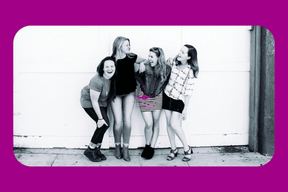Longing for Youth and Jealou
Jealousy is an emotional state that everyone can experience in certain situations. It can manifest in different forms and ways, depending on each person's personal story and nature.
It’s often said that jealousy is not innate but learned. While it’s clear that many of our emotions are shaped by experiences, understanding what is natural and what is imposed upon us can be quite confusing.
I’ve observed that jealousy is common in people with very active minds. The mind's capacity allows it to channel its energy into this area and, moreover, it can obsess over it and keep itself occupied. The mind needs something to play with and be distracted by. If I don't direct my mind to something that serves me, it will definitely latch onto something else. On top of that, today’s media constantly presents us with ideals and beauty standards—even spiritualism is idealized and made to appear as if it’s all just a performance—leading to a heightened sense of comparison and jealousy.
We generally analyze jealousy in two forms: jealousy towards our partner or jealousy/envy towards people we believe are in the same race or competing with us.
In this writing, I will focus on jealousy within the same race.
I distinctly remember comparing myself to many girls, especially during my high school years. Who’s prettier? What makes her prettier? What is beauty? What do I need to do to be beautiful? What should I do, or avoid, to feel more beautiful? I was an enthusiastic young girl, perhaps overly focused on grooming, plucking my eyebrows every two weeks.
The situation wasn’t any different around me—clearly, the competition for beauty/attractiveness is something we learn when we begin to identify ourselves with our sexual identity. Do you remember competing with others over beauty as a child? Maybe in other areas, but certainly not over beauty. The need to be beautiful and be defined by our beauty starts when society begins transitioning us from a child into a young woman. Sometimes, we are thrown into this race without our consent; society places us into this young womanhood status.
The system supports this by defining beauty and attractiveness, declaring that “this is what beauty is,” without allowing room for discussion. Even though the trend of “natural beauty” has become more popular recently, our perception still develops based on what’s imposed on us. Many of the forms we think are authentic to us have been subtly programmed into us. There’s a large industry that profits from this: cosmetics and aesthetics. I wrote more about my thoughts on this in my article *Beauty as Bait and the Predator Cosmetic Industry*.
When we realize how important beauty is to society, we start trying to define ourselves through it. But there’s a great danger in defining ourselves solely through our physical beauty: the risk of losing it, or the risk that others might be more beautiful than us.
Since I mostly work with women, I often encounter a common question: "How old are you?" I rarely get this question from participants who are not women. In all the classes I teach, a sort of age frenzy starts, with everyone asking each other’s age, and there’s no stopping it. Behind this question lies another hidden one: “How much longer will you remain beautiful?” “Are you my competition?” “Am I too late to do something, or is it too early?” “Can I compare myself to you?”
Jealousy is the natural result of constantly longing for something we don’t have. And what we won’t have anymore is our youth. Therefore, an unspoken jealousy often flows from older women toward younger ones: “You’re young, that’s why…” “When I was your age, I weighed 51 kg.” “I used to say the same thing back then, but now…” Through comments like these, even if subtly expressed, feelings of hopelessness and jealousy about youth are conveyed.
Those who are younger than us are seen as potential threats to be more beautiful than us.
So, why do we accept this perception without question and fail to work on it?
Because the illusion of immortality is shattered with aging, and in order to hold on to life, people constantly seek youth, immortality. Aging is viewed as a defeat, especially if one couldn’t live authentically in their youth...
As someone who works with women of all ages, I can confidently say that it’s possible to develop ourselves in this area without falling into this trap. We can start by viewing age from a different perspective, for example. Age is a concept that belongs to the world, but as we know, the journey of life goes far beyond that. The relativity and multidimensionality of time have become more frequent topics of conversation.
In a timeless dimension, who am I? What am I, and where am I going?
What is beauty to me, what does true beauty mean to me?
If no one had ever told me what beauty is, what would I define as beautiful?
Asking ourselves these questions can help us step out of the preconceived notions we’ve been taught. By staying true to ourselves without falling into the traps of a competitive structure, we can remind ourselves that we don’t need to have an ideal form of beauty to be connected with others or to be accepted.
You cannot possess beauty.
You are a part of beauty.
Just like everyone else.


